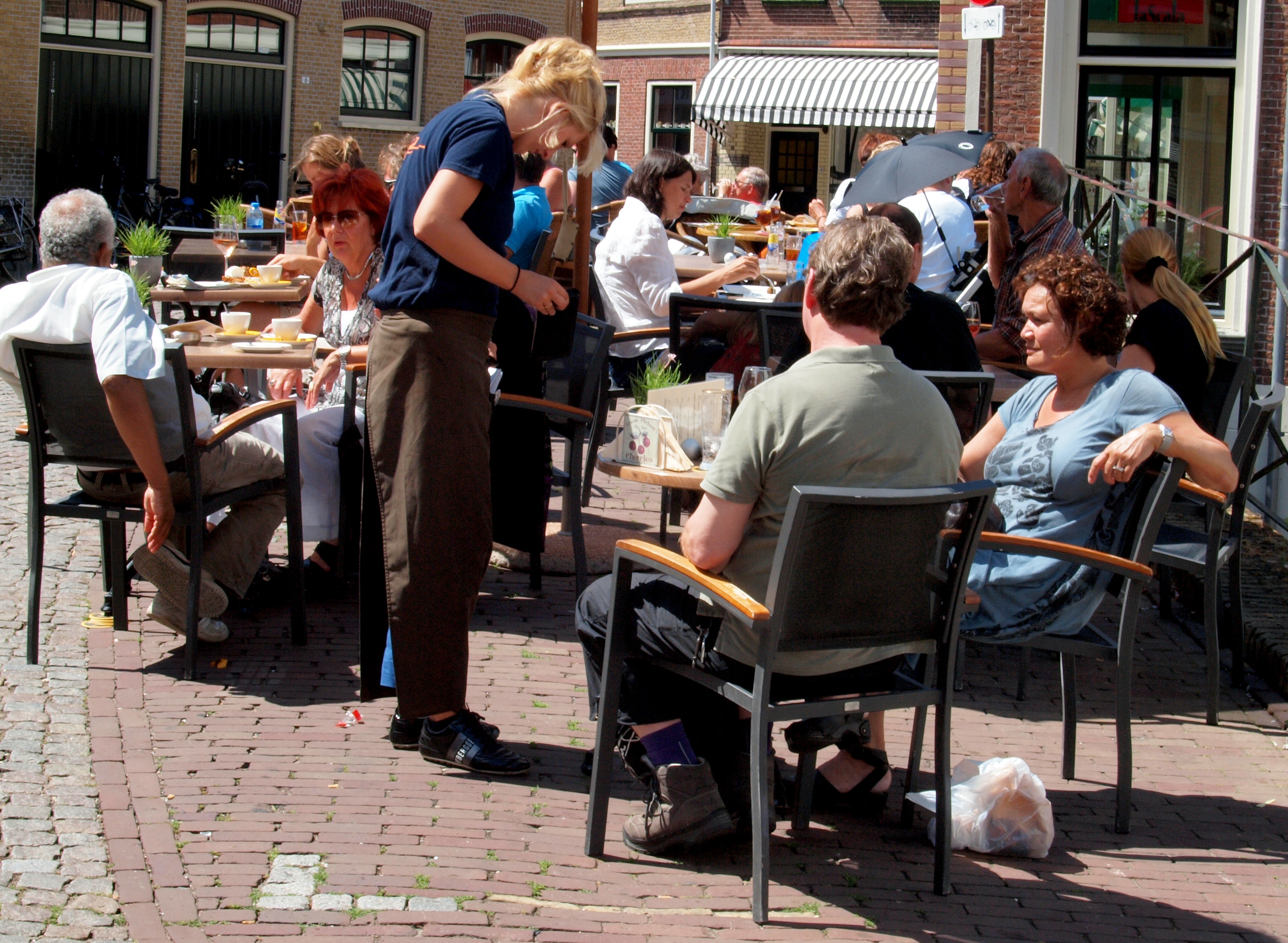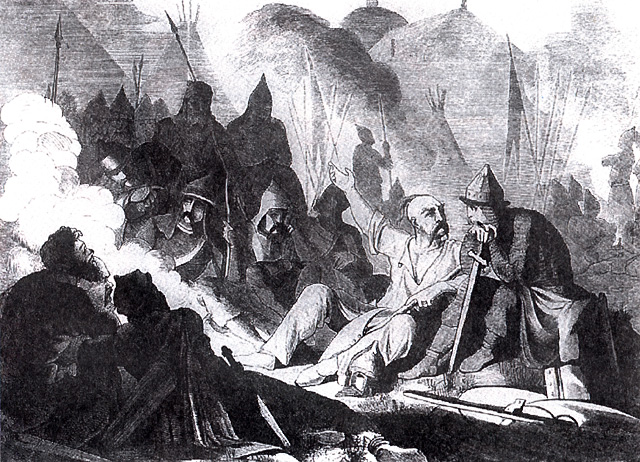|
Trust (emotion)
Trust is the belief that another person will do what is expected. It brings with it a willingness for one party (the trustor) to become vulnerable to another party (the trustee), on the presumption that the trustee will act in ways that benefit the trustor. In addition, the trustor does not have control over the actions of the trustee. Scholars distinguish between generalized trust (also known as social trust), which is the extension of trust to a relatively large circle of unfamiliar others, and particularized trust, which is contingent on a specific situation or a specific relationship. As the trustor is uncertain about the outcome of the trustee's actions, the trustor can only develop and evaluate expectations. Such expectations are formed with a view to the motivations of the trustee, dependent on their characteristics, the situation, and their interaction. The uncertainty stems from the risk of failure or harm to the trustor if the trustee does not behave as desired. In t ... [...More Info...] [...Related Items...] OR: [Wikipedia] [Google] [Baidu] |
|
|
Trust In Others In Europe, OWID
Trust often refers to: * Trust (social science), confidence in or dependence on a person or quality It may also refer to: Business and law * Trust (law), a legal relationship in which one person holds property for another's benefit * Trust (business), the combination of several businesses under the same management to prevent competition * Investment trust, a form of investment fund Arts, entertainment, and media * Stargate Program#Trust, The Trust, a fictional entity in the ''Stargate'' franchise * Trust, a computer in ''Raised by Wolves (American TV series), Raised by Wolves'' *Trust (novel), ''Trust'' (novel), 2022 novel by Hernan Diaz * Trust (magazine), ''Trust'' (magazine), a free tri-annual investment trust magazine Films * The Trust (1915 film), ''The Trust'' (1915 film), a lost silent drama film * Trust (1976 film), ''Trust'' (1976 film), a Finnish-Soviet historical drama * Trust (1990 film), ''Trust'' (1990 film), a dark romantic comedy * The Trust (1993 film), ''The ... [...More Info...] [...Related Items...] OR: [Wikipedia] [Google] [Baidu] |
|
|
Generalized Trust
Generalized trust, also known as spontaneous sociability, is the trust that people have in their fellow members of society in general. It is often measured in survey-based social science research by asking the question, "Generally speaking, would you say that most people can be trusted or that you can’t be too careful in dealing with people?" This question has been included in the General Social Surveys in the United States, the World Values Survey, and the European Social Surveys. Unlike many other human behavioral traits, generalized trust has been found to exhibit a moderate to low heritability Heritability is a statistic used in the fields of Animal husbandry, breeding and genetics that estimates the degree of ''variation'' in a phenotypic trait in a population that is due to genetic variation between individuals in that population. T ... in behavior genetic studies, implying that culture is more important in the development of such trust than is genetics. The sign ... [...More Info...] [...Related Items...] OR: [Wikipedia] [Google] [Baidu] |
|
 |
Information System
An information system (IS) is a formal, sociotechnical, organizational system designed to collect, process, Information Processing and Management, store, and information distribution, distribute information. From a sociotechnical perspective, information systems comprise four components: task, people, structure (or roles), and technology. Information systems can be defined as an integration of components for collection, storage and data processing, processing of data, comprising digital products that process data to facilitate decision making and the data being used to provide information and contribute to knowledge. A computer information system is a system, which consists of people and computers that process or interpret information. The term is also sometimes used to simply refer to a computer system with software installed. "Information systems" is also an academic field of study about systems with a specific reference to information and the complementary networks of computer ... [...More Info...] [...Related Items...] OR: [Wikipedia] [Google] [Baidu] |
 |
Social Psychology
Social psychology is the methodical study of how thoughts, feelings, and behaviors are influenced by the actual, imagined, or implied presence of others. Although studying many of the same substantive topics as its counterpart in the field of sociology, psychological social psychology places more emphasis on the individual, rather than society; the influence of social structure and culture on individual outcomes, such as personality, behavior, and one's position in social hierarchies. Social psychologists typically explain human behavior as a result of the relationship between mental states and social situations, studying the social conditions under which thoughts, feelings, and behaviors occur, and how these variables influence social interactions. History 19th century In the 19th century, social psychology began to emerge from the larger field of psychology. At the time, many psychologists were concerned with developing concrete explanations for the different aspe ... [...More Info...] [...Related Items...] OR: [Wikipedia] [Google] [Baidu] |
 |
Cooperation
Cooperation (written as co-operation in British English and, with a varied usage along time, coöperation) takes place when a group of organisms works or acts together for a collective benefit to the group as opposed to working in competition for selfish individual benefit. In biology, many animal and plant species cooperate both with other members of their own species and with members of other species with whom they have (symbiotic or mutualism (biology), mutualistic) relationships. Among humans Humans cooperate for the same reasons as other animals: immediate benefit, genetic relatedness, and reciprocity, but also for particularly human reasons, such as honesty signaling (indirect reciprocity), cultural group selection, and for reasons having to do with cultural evolution. Language allows humans to cooperate on a very large scale. Certain studies have suggested that fairness affects human cooperation; individuals are willing to punish at their own cost (''altruistic punis ... [...More Info...] [...Related Items...] OR: [Wikipedia] [Google] [Baidu] |
 |
Social Complexity
In sociology, social complexity is a conceptual framework used in the analysis of society. In the sciences, contemporary definitions of complexity are found in systems theory, wherein the phenomenon being studied has many parts and many possible arrangements of the parts; simultaneously, what is complex and what is simple are relative and change in time. Contemporary usage of the term ''complexity'' specifically refers to sociologic theories of society as a complex adaptive system, however, social complexity and its emergence, emergent properties are recurring subjects throughout the historical development of social philosophy and the study of social change.Eve, Raymond, Sara Horsfall and Mary E. Lee (eds.) (1997). ''Chaos, Complexity and Sociology: Myths, Models, and Theories.'' Thousand Oaks, CA: Sage Publications. Early sociological theory, theoreticians of sociology, such as Ferdinand Tönnies, Émile Durkheim, and Max Weber, Vilfredo Pareto and Georg Simmel, examined the ex ... [...More Info...] [...Related Items...] OR: [Wikipedia] [Google] [Baidu] |
 |
Bounded Rationality
Bounded rationality is the idea that rationality is limited when individuals decision-making, make decisions, and under these limitations, rational individuals will select a decision that is satisficing, satisfactory rather than optimal. Limitations include the difficulty of the problem requiring a decision, the cognitive capability of the mind, and the time available to make the decision. Decision-makers, in this view, act as satisficers, seeking a satisfactory solution, with everything that they have at the moment rather than an optimal solution. Therefore, humans do not undertake a full Cost–benefit analysis, cost-benefit analysis to determine the optimal decision, but rather, choose an option that fulfills their adequacy criteria. Some models of human behavior in the social sciences assume that humans can be reasonably approximated or described as rationality, rational entities, as in rational choice theory or An Economic Theory of Democracy, Downs' political agency model.M ... [...More Info...] [...Related Items...] OR: [Wikipedia] [Google] [Baidu] |
|
Analysis Paralysis
Analysis paralysis (or paralysis by analysis) describes an individual or group process where overanalyzing or overthinking a situation can cause forward motion or decision-making to become " paralyzed", meaning that no solution or course of action is decided upon within a natural time frame. A situation may be deemed too complicated and a decision is never made, or made much too late, due to anxiety that a potentially larger problem may arise. A person may desire a perfect solution, but may fear making a decision that could result in error, while on the way to a better solution. Equally, a person may hold that a superior solution is a short step away, and stall in its endless pursuit, with no concept of diminishing returns. On the opposite end of the time spectrum is the phrase extinct by instinct, which is making a fatal decision based on hasty judgment or a gut reaction. Analysis paralysis is when the fear of either making an error or forgoing a superior solution outweighs th ... [...More Info...] [...Related Items...] OR: [Wikipedia] [Google] [Baidu] |
|
 |
Sviatoslav I
Sviatoslav or Svyatoslav I Igorevich (; Old Norse: ''Sveinald''; – 972) was Prince of Kiev from 945 until his death in 972. He is known for his persistent campaigns in the east and south, which precipitated the collapse of two great powers in Eastern Europe, Khazars, Khazaria and the First Bulgarian Empire. He conquered numerous East Slavs, East Slavic tribes, defeated the Alans and attacked the Volga Bulgaria, Volga Bulgars, and at times was allied with the Pechenegs and Hungarian people, Magyars (Hungarians). Following the death of his father Igor of Kiev, Igor in 945, Sviatoslav's mother Olga of Kiev, Olga reigned as regent in Kiev until 962. His decade-long reign over the Kievan Rus' was marked by rapid expansion into the Volga, Volga River valley, the Pontic–Caspian steppe, Pontic steppe, and the Balkans, leading him to carve out for himself the largest state in Europe. In 969, he moved his seat to Pereyaslavets on the Danube. In 970, he appointed his sons Yaropolk I ... [...More Info...] [...Related Items...] OR: [Wikipedia] [Google] [Baidu] |
|
Post-modernity
Postmodernity (post-modernity or the postmodern condition) is the economic or cultural state or condition of society which is said to exist ''after'' modernity. Some schools of thought hold that modernity ended in the late 20th century – in the 1980s or early 1990s – and that it was replaced by postmodernity, and still others would extend modernity to cover the developments denoted by postmodernity. The idea of the postmodern condition is sometimes characterized as a culture stripped of its capacity to function in any linear or autonomous state like regressive isolationism, as opposed to the progressive mind state of modernism. Postmodernity can mean a personal response to a postmodern society, the conditions in a society which make it postmodern or the state of being that is associated with a postmodern society as well as a historical epoch. In most contexts it should be distinguished from postmodernism, the adoption of postmodern philosophies or traits in the arts, culture ... [...More Info...] [...Related Items...] OR: [Wikipedia] [Google] [Baidu] |
|
|
Late Modernity
Late modernity (or liquid modernity) is the characterization of today's highly developed global society, societies as the continuation (or social progress, development) of modernity rather than as an element of the succeeding era known as postmodernity, or the postmodern. Introduced as "liquid" modernity by the Polish sociologist Zygmunt Bauman, late modernity is marked by the globalization, global capitalist economies with their increasing privatization of services and by the information revolution. Among its characteristics is that some traits, which in previous generations were assigned to individuals by the community, are instead self-assigned individually and can be changed at will. As a result, people feel insecure about their identities and their places in society, and they feel anxious and distrustful about whether their self-proclaimed traits are being respected. Society as a whole feels more chaotic. Versus postmodernity Social theory, Social theorists and sociolog ... [...More Info...] [...Related Items...] OR: [Wikipedia] [Google] [Baidu] |
|
|
Social Reality
Social reality refers to a socially constructed perspective of the world, consisting of the accepted social tenets of a community involving laws and social representations. It is distinct from biological reality or individual cognitive reality, representing as it does on a subjective level created through social interaction and thereby transcending individual motives and actions. Radical constructivism would cautiously describe social reality as the product of uniformities among observers (whether or not including the current observer themselves). Schütz, Durkheim, and Spencer The problem of social reality has been treated exhaustively by philosophers in the phenomenological tradition, particularly Alfred Schütz, who used the term "social world" to designate this distinct level of reality. Within the social world, Schütz distinguished between social reality that could be experienced directly (''umwelt'') and a social reality beyond the immediate horizon, which could yet ... [...More Info...] [...Related Items...] OR: [Wikipedia] [Google] [Baidu] |